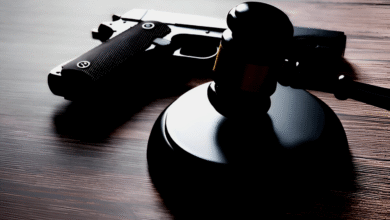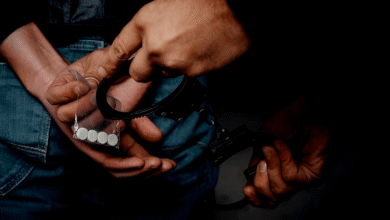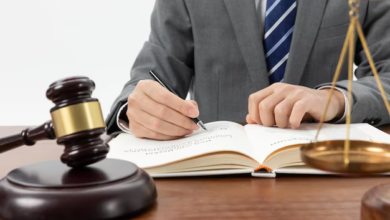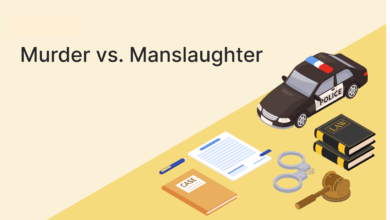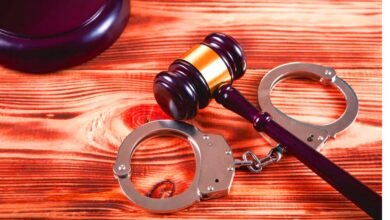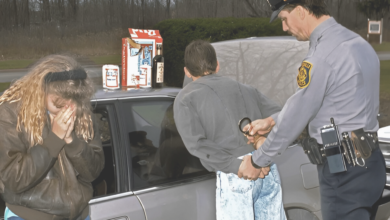Hate Crime Laws in New York Legal Protections and Penalties
Hate crime laws in New York provide enhanced legal protections and penalties for bias-motivated offenses. Learn about victims' rights and offender consequences.

Hate crime laws in New York are among the toughest in the nation, offering enhanced legal protections and penalties for offenses motivated by bias against a victim’s race, religion, ethnicity, sexual orientation, gender identity, or other protected characteristics. These laws recognize that crimes driven by hatred not only harm individuals but also threaten the safety and cohesion of entire Crime Laws. By imposing stricter punishments and providing robust legal recourse for victims, New York sends a clear message that acts of bigotry and intolerance will not be tolerated.
The state’s legal framework, including the New York Penal Law § 485.05, defines hate crimes as offenses where the perpetrator intentionally selects a victim based on prejudice. Recent expansions, such as the Josef Neumann Hate Crimes Domestic Terrorism Act, have further strengthened these protections. This article explores the scope of New York’s hate crime laws, the penalties offenders face, the legal safeguards available to victims, and the ongoing challenges in enforcing these critical statutes. Understanding these laws is essential for ensuring justice and fostering a more inclusive society.
Hate Crime Laws in New York Legal Protections and Penalties
New York has long been at the forefront of enacting stringent hate crime laws to combat bias-motivated violence. These laws recognize that crimes driven by prejudice not only harm individual victims but also instill fear in entire communities. Under New York Penal Law § 485.05, a hate crime occurs when an offender targets a victim based on race, religion, ethnicity, national origin, sexual orientation, gender identity, disability, or other protected characteristics. The state imposes enhanced penalties for such offenses, reflecting the severe impact of hate-fueled violence.
Legal Framework of Hate Crime Laws in New York
Expansion of Protections Under the Josef Neumann Act
The 2020 Josef Neumann Hate Crimes Domestic Terrorism Act marked a significant toughening of New York’s hate crime laws, named in memory of a victim fatally stabbed during a Hanukkah celebration in Monsey. This critical legislation broadened legal protections in two Crime Laws First, it expanded the list of protected categories to include offenses motivated by a victim’s age, gender, or immigration status recognizing emerging forms of bias. Second, it elevated penalties across the board, allowing prosecutors to pursue hate crimes as either standalone charges or sentence enhancers for underlying offenses like assault or property damage. The law particularly targeted domestic terrorism aspects of hate crimes, acknowledging their potential to incite widespread fear in communities.
Proving Bias Motivation in Court
Establishing the hate crime element requires prosecutors to demonstrate the offender intentionally targeted victims based on protected characteristics a Crime Laws but crucial evidentiary hurdle. Courts accept multiple forms of proof including Explicit evidence like racial slurs, hate symbols, or written manifestos. Circumstantial indicators such as targeting a synagogue or LGBTQ+ gathering place. Pattern evidence showing a history of biased statements or actions. The law permits judges and juries to consider the totality of circumstances, including the timing of attacks (near religious holidays), location selection, or the offender’s affiliations with hate groups. This flexible approach helps address cases where bigoted intent may be implicit rather than openly declared.
Categories of Protected Groups
New York’s hate crime laws cover a broad range of protected characteristics, including Race & Ethnicity Crimes targeting individuals based on skin color or ancestry. Religion Attacks on places of worship or individuals due to their faith. Sexual Orientation & Gender Identity Violence against LGBTQ+ individuals. Disability Offenses targeting people with physical or mental disabilities. National Origin Discrimination against immigrants or ethnic groups. These protections ensure that marginalized communities receive legal recourse against hate-driven violence.
Penalties for Hate Crimes in New York
Hate crimes in New York carry severe penalties, often exceeding those for standard offenses. Depending on the underlying crime, penalties can range from misdemeanors to felonies Class A Misdemeanor: Punishable by up to one year in jail (e.g., aggravated harassment). Class D Felony Up to seven years in prison (e.g., assault with a hate crime enhancement). Class B Felony: Up to 25 years for violent hate crimes. Judges may also impose restitution, probation, and mandatory anti-bias education programs. Repeat offenders face even harsher sentences.
Victim Protections and Legal Recourse
Comprehensive Victim Support and Legal Remedies
New York offers hate crime victims multiple avenues for protection and justice through both civil and criminal systems. The state enables victims to file civil lawsuits against perpetrators to recover damages for medical expenses, emotional distress, and other losses, separate from any criminal prosecution. Family courts can issue orders of protection that legally prohibit Crime Laws from contacting victims, with violations constituting additional criminal charges. Additionally, New York’s Office of Victim Services provides financial compensation covering counseling, medical treatment.
Specialized Law Enforcement and Prosecution Resources
New York has established dedicated investigative and prosecutorial units to handle hate crimes with appropriate expertise and sensitivity. The NYPD’s Hate Crimes Task Force operates as a citywide unit with multilingual detectives trained to properly identify and document bias indicators, while collaborating with community organizations to improve reporting. At the state Crime Laws, the Attorney General’s Civil Rights Bureau has authority to investigate systemic patterns of hate activity and bring civil rights actions against perpetrators. These specialized units work closely with district Crime Laws to ensure hate crime charges are properly filed.
Challenges in Prosecuting Hate Crimes
Despite strong laws, prosecuting hate crimes remains challenging. Proving bias motivation can be difficult without explicit evidence. Some victims fear retaliation or distrust law enforcement, leading to underreporting. Additionally, social media has amplified hate speech, complicating enforcement efforts.
Read More: Ethical Dilemmas in Healthcare Law: Balancing Patient Care and Legal Obligations
Conclusion
Hate crime laws in New York represent a critical legal framework for combating bias-motivated violence and fostering a more inclusive society. By imposing enhanced penalties and recognizing the broader societal harm caused by these offenses, the state demonstrates its commitment to protecting vulnerable communities. However, the effectiveness of these laws depends on consistent enforcement, thorough investigations, and the willingness of victims to come forward. Crime Laws efforts to educate law enforcement, improve reporting mechanisms, and strengthen community trust remain essential in the ongoing fight against hate-fueled crimes.
Ultimately, hate crime laws in New York serve as both a deterrent and a declaration that prejudice will not be tolerated. While significant progress has been made, challenges such as underreporting and evidentiary hurdles persist. To build on these protections, lawmakers, advocacy groups, and citizens must work together to promote accountability, support victims, and address the root causes of hatred. By upholding these laws with vigilance and compassion, New York can continue leading the way in creating a safer, more just society for all.
FAQs
What qualifies as a hate crime in New York?
A hate crime occurs when an offender targets a victim based on race, religion, sexual orientation, or other protected traits under NY Penal Law § 485.05.
What are the penalties for a hate crime conviction?
Penalties vary but can include jail time, Crime Laws, probation, and mandatory anti-bias programs, with enhancements for violent offenses.
How can victims report a hate crime?
Victims can contact local police, the NYPD Hate Crimes Task Force, or the NY Attorney General’s office for assistance.
Can a hate crime be charged as a federal offense?
Yes, if the crime involves interstate commerce or federal jurisdiction, it may be prosecuted under U.S. hate crime laws.
What resources are available for hate crime victims?
Victims can seek help from advocacy groups, legal aid organizations, and state-funded compensation programs for support and protection.


